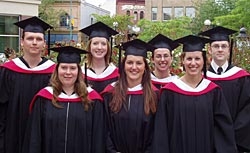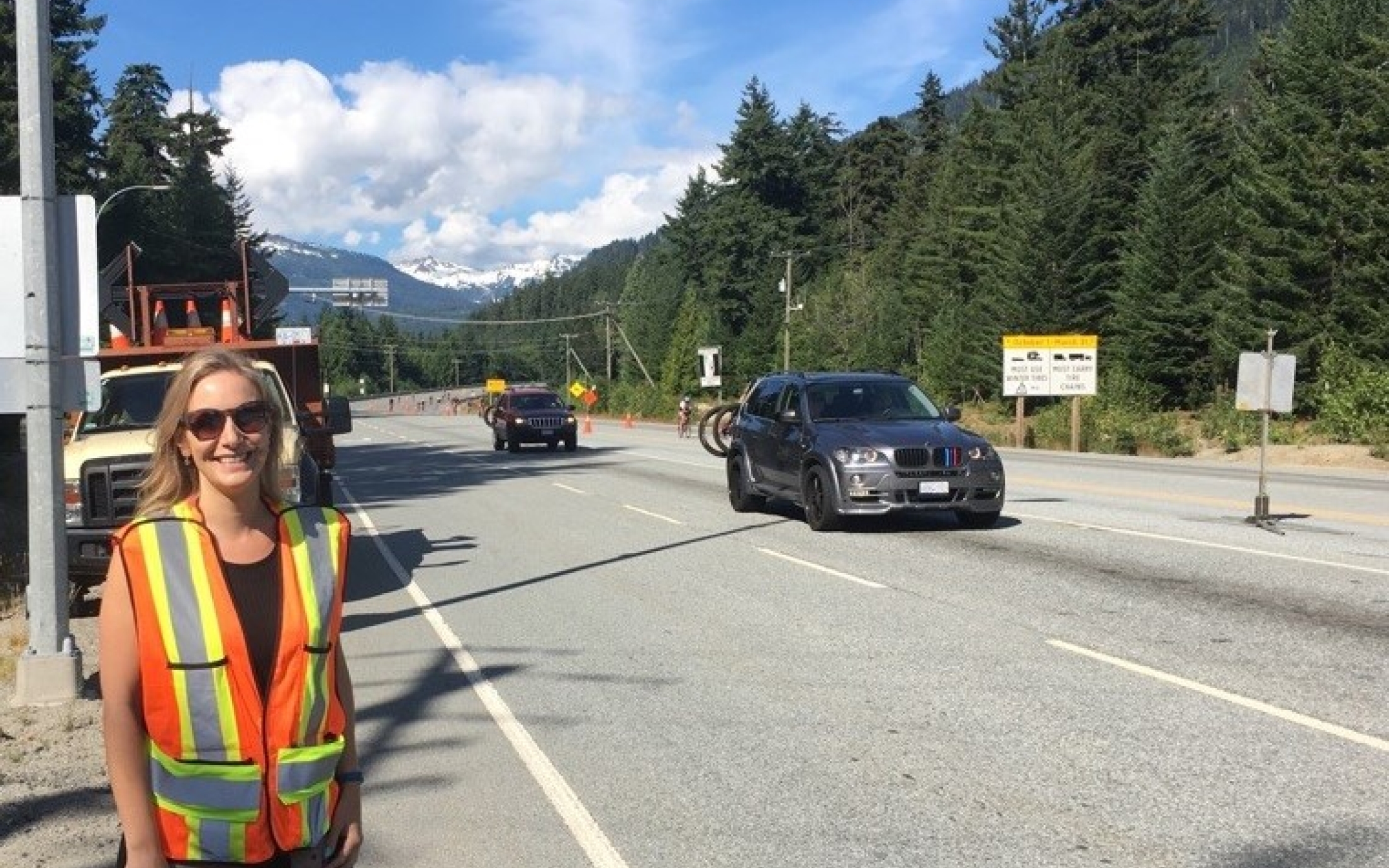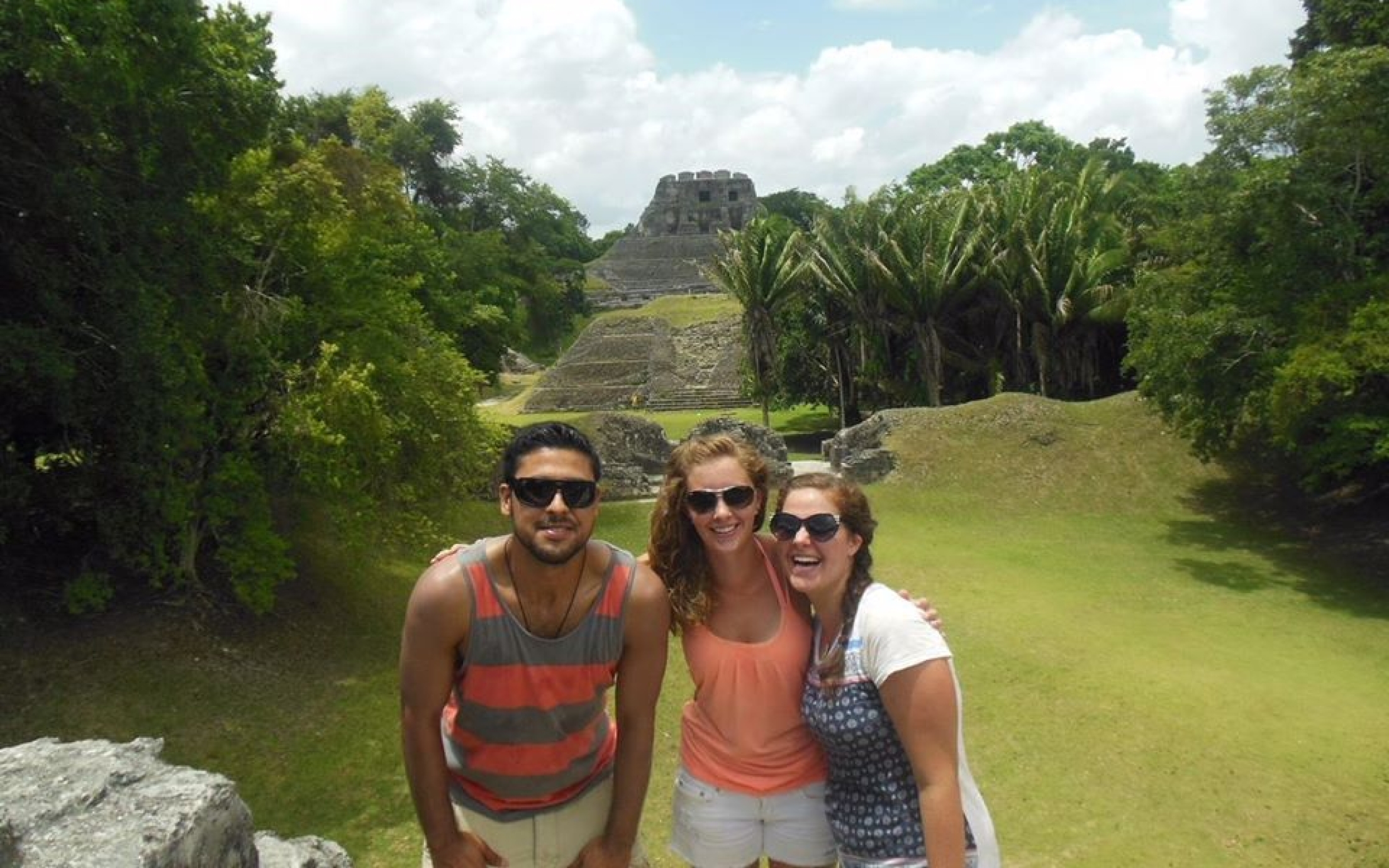
Graduates from VIU’s Geography programs either enter the workforce or pursue higher post-graduate education. Some graduates enter VIU’s Advanced Diploma in GIS Applications (ADGISA) program, which can be taken either face-to-face or online; or continue on to the Master of GIS Applications (MGISA) Program. Other graduates take master’s degree programs in geography, planning, or natural resource management. VIU's Master of Community Planning Program is fully accredited through the Canadian Institute of Planners. Others enter professional programs, such as education or law. In British Columbia’s secondary schools, geography is a popular teachable subject and some graduates choose to enroll in teacher training in VIU’s full-time Bachelor of Education, Post Baccalaureate Degree Program.
Labour market demand for geography graduates remains strong – regionally, nationally, and internationally. Students at VIU have the opportunity to acquire practical skills in geographic communication, spatial analysis, spatial statistics, geographic information systems (GIS), and remote sensing (RS) -– skills that are transferable to any number of employment opportunities. Globally, GIS and RS are multi-billion dollar industries that constantly require graduates with a solid geographic background – intellectually and technically.
For further information on career opportunities, review: Careers in Geography, Geomatics, and Planning.

Amy Barker, BA in Geography
As part of the #WhereAreTheyNowVIUGeog series, we checked in with Amy Barker...
Amy Barker has been working for the BC Ministry of Transportation and Infrastructure ever since earning her BA in Geography. During her last year of undergrad, she applied for the Ministry's Technician Entry Level Program (TELP) and was offered a job in the Lower Mainland as a Development Services Officer upon graduation. In 2018, she was promoted to Senior Development Officer.
When asked which geography graduate attributes helped prepare her for her career, she summarized her response into three main areas:
"Government Processes: Through classes at VIU and completing assignments, like attending local public hearings, I gained a solid understanding of government processes and the impacts residents face with land development in diverse communities. I appreciated the opportunities the VIU Geography program provided to dive into real-world assignments, like facilitating public events and attending field school outside of the province.
Land Evaluation: At work, I review rural subdivision applications, and my geography degree has been helpful to understand the variety of reports that are required as part of land evaluation. Experience interpreting maps, aerial photographs, and GIS has helped me gain a sense of the investigations that may be required for development, such as geotechnical or flooding analysis, before I go out in the field.
Communication: Communication was a big part of the courses I took to fulfill my Geography degree. Courses like Geographic Communication and Research Methods allowed me to feel more comfortable delivering presentations and gathering feedback. The Research Methods course and Field School focused on group work and helped me build a foundation for developing professional relationships and working cohesively in a group setting."

Taylor Jenks, BA in Geography and Global Studies
Taylor Jenks (BA Geography/Global Studies) has been busy since graduating with an emphasis on Urban and Regional Management. Her Global Studies Belize internship in her final year of undergrad initially led to more travel, followed by several geography-related jobs, including Halalt First Nation community development planning, Emergency Management BC, and her current position of Development Planning Assistant with the District of North Vancouver.
Taylor had this to say about how her degree prepared her for her present job:
"Geography, especially combined with global studies encouraged me and required me to evaluate my surroundings in a different way. As much as the development planning work I’m doing is about ensuring that applicants, developers, residents etc are abiding by regulations and policies, my experience with community planning also reminds me to take a step back from how things look on paper and evaluate how they operate as a whole. Evaluating and applying any and every form of geography - environmental, social, cultural, economic, as well as considerations like traffic management, access, community etc - all become extremely relevant.
During my degree we had the opportunity to gain experience with community consultation and facilitating meetings which has become important not only in discussions with community members and stakeholders, but also internal meetings, where you have diverse areas of expertise all trying to make their case on a project and trying to find some common ground to work from is necessary."
